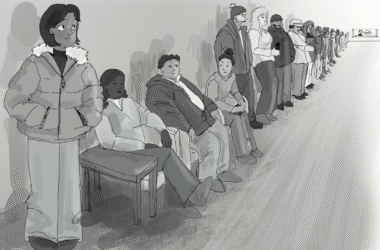The homelessness epidemic continues to affect over 235,000 Canadians each year, most of them in major cities. Despite some efforts from municipal governments and charitable organizations to address the staggering number of unhoused Canadians, this figure has continued to rise annually since the late 1980s. However, a new study published by researchers in McGill’s Department of Psychiatry showed that an unconventional, cost-effective strategy could help overcome a number of persistent roadblocks in finding long-term housing for individuals.
The study evaluated the cost-effectiveness of the “Housing First” strategy, which consists of finding permanent housing for individuals in addition to providing a rent supplement, prior to addressing other concerns such as physical and mental health problems. McGill researchers sought to test this novel strategy alongside existing programs, such as Assertive Community Treatment (ACT), and compare their outcomes with these conventional methods.
“The aim […] was basically to find out to what extent did delivering ‘Housing First’ services reduce the use of other services,” Dr. Eric Latimer, a professor in the Department of Psychiatry at McGill, said in a phone interview with The McGill Tribune.
This study was part of a larger ongoing research project, At Home/Chez Soi that aims to provide practical, meaningful support to Canadians experiencing homelessness and mental health problems. The four-year national research project found that the “Housing First” approach was more conducive to helping unhoused individuals secure long-term housing in comparison to more conventional housing and support services.
“You help the person get an apartment and you keep on supporting them for as long as necessary so that their lives move forward,” Latimer said.
From Latimer’s perspective, providing ongoing support for unhoused Canadians sets the “Housing First” model apart from prior initiatives.
“[The goal is] to really be there for them, to help them not only get an apartment initially, but to remain housed, and furthermore […] to progress in their lives and move ahead with goals that are meaningful for them,” Latimer said.
This continuous support strategy can be realized with the aid of an Intensive Case Management (ICM) team for people with moderate needs who encounter fewer barriers to rehabilitation. Individuals needing more intensive assistance can follow ACT plans. ACT teams, which are more specialized, cost significantly more than ICM.
Latimer and his colleagues showed that investing in a “Housing First” approach is cost-effective, particularly when assisting high-need individuals experiencing acute mental illness. This strategy reduces the cost of interventions and decreases reliance on more costly public services like emergency shelters.
Unfortunately, despite the clear advantages of implementing the “Housing First” strategy along with existing ACT teams, many cities and provinces are reluctant to adopt the model.
“When the government decided to fund these ‘Housing First’ services, they were only willing to fund it for moderate-needs individuals,” Latimer said. “ACT teams fall too clearly [within] provincial jurisdiction.”
Though the federal government has left it up to individual provinces to fund the new strategy, it has provided little to no financial incentive for municipalities to do so. According to Latimer, cities and provinces often fail to provide adequate services and funds for high-needs individuals.
“In Montreal, only one team serves people who would be considered high-need [under] the ‘Housing First’ [strategy], but it does so without rent supplements and in a time-limited way, so it is not ideal,” Latimer said.
The results of the At Home/Chez Soi research project could inject new vigor into the nationwide campaign to end homelessness in Canadian cities.









